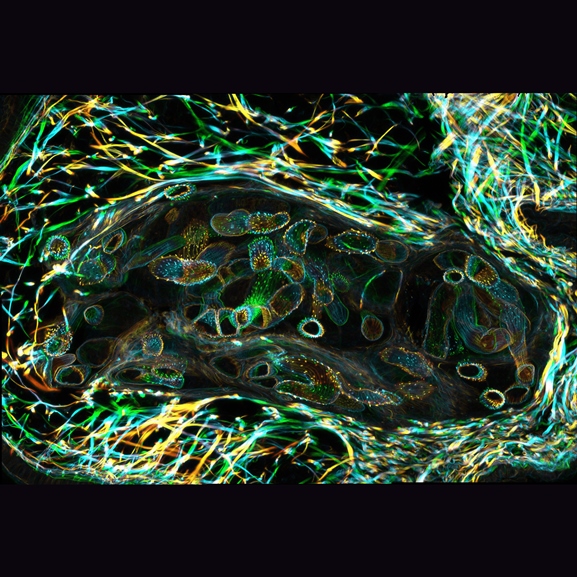 The Whitney Laboratory for Marine Bioscience
The Whitney Laboratory for Marine Bioscience

The Evenings at Whitney Lecture Series hosted by the University of Florida Whitney Laboratory returns on Feb. 8, 2018, at 7 p.m. with the program titled “From Planarians to Parasites: Stem Cells and Developmental Plasticity in Flatworms.” Investigator of the Howard Hughes Medical Institute, Morgridge Institute for Research Burnell R. Roberts Chair in Regenerative Biology, and University of Wisconsin–Madison Professor of Integrative Biology Phillip Newmark will talk about the regenerative abilities of planarians, free-living flatworms, which can completely regrow from a small tissue fragment. This free lecture will be presented at Lohman Auditorium located at 9505 Ocean Shore Blvd., on the Whitney Laboratory campus.
Planarians are able to determine if a body part is damaged or removed and quickly repair or regrow the correct body part, whether it is the head, brain or tail, through regeneration. By understanding this process in planarians, it helps gain a better overall understanding of how certain organisms are capable of regeneration. Newmark will talk about how regeneration in planarians is made possible through a population of adult stem cells, known as neoblasts, that serve as the source of new tissue during regeneration. Newmark will also share the importance of such research to global health, including how to control certain diseases caused by parasites.
Newmark earned a bachelor’s degree in biology from Boston University and doctorate in molecular, cellular and developmental biology from the University of Colorado Boulder. His postdoctoral work with Jaume Baguñà at the University of Barcelona and then with Alejandro Sánchez Alvarado at the Carnegie Institution for Science applied the tools of molecular and cellular biology to study planarian regeneration, a classic problem of developmental biology. This work continued in his laboratory at the University of Illinois at Urbana-Champaign from 2001-2016. His current research seeks to understand how the planarian’s somatic stem cells produce the germ cells and various differentiated cells in the animal. His group has also been applying their knowledge about planarians to understand the biology of the planarian’s parasitic cousins, the schistosomes and tapeworms.